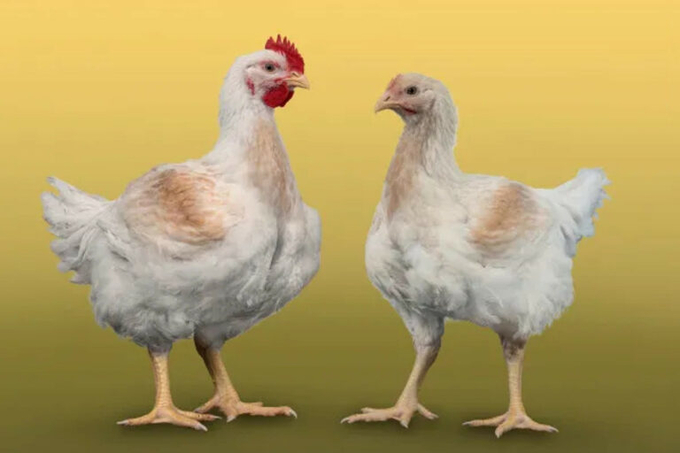November 27, 2025 | 22:23 GMT +7
November 27, 2025 | 22:23 GMT +7
Hotline: 0913.378.918
November 27, 2025 | 22:23 GMT +7
Hotline: 0913.378.918

Aviagen has received approval from the RSPCA for an additional slower-growing breed that meets the standards of the European Chicken Commitment. Photo: Aviagen
Aviagen’s Rustic Gold bird follows the Rowan Range of slower-growing and coloured breed options to be awarded the accreditation, alongside the previously approved Ranger Gold and Ranger Classic. The company offers various breeds to give customers choice in the markets in which they serve.
Rustic Gold’s characteristics include a strong feed efficiency and a balance of outstanding welfare and performance. Aviagen’s director of Research and Development, Dr Brendan Duggan: “Both our conventional and slower-growing breeds are selected for health, welfare and sustainability characteristics as part of our balanced breeding approach. Aviagen works closely with the RSPCA and other organisations across Europe as we continue to enhance welfare across our entire choice of breeds.”
The announcement follows a report that said transitioning to the European Chicken Commitment standards would result in an additional production cost of 37.5% per kg of meat, an increase in water and feed consumption and a rise in greenhouse gas emissions.
It would also reduce the amount of meat being produced for consumers and, for the industry to be able to maintain current production levels, it would need to build huge numbers of additional poultry units.
Those were the findings of a study carried out by UK-based ADAS for the Association of Poultry Processors and Poultry Trade in the EU Countries (AVEC). It found:
The report said these effects on production would inevitably lead to higher prices that could exclude a large part of consumers from buying chicken meat or drastically increase imports from third countries with lower animal welfare standards.
The European Chicken Commitment commits its signatories to apply several requirements such as the use of slower-growing chicken breeds, a lower stocking density, the use of enriched tools to 100% of their fresh, frozen and processed poultry supply chain by 2026.
The study was commissioned by AVEC to look at the environmental implications and its effects on chicken meat production.
Commenting on the results, Birthe Steenberg, AVEC’s secretary general, said: “The unique aspect of this study lies in the emphasis placed on calculating costs per kilogramme of meat, unlike previous research which has focused solely on the consequences for live birds or liveweight, which doesn’t accurately reflect market realities since we sell meat, not live animals.”
Jason Gittins, ADAS technical director for livestock, added: “Due to differences in meat yields between standard and ECC production, earlier studies often underestimated the true impact of switching to ECC standards.”
(Poultryworld)

(VAN) A new study reveals how the simultaneous effects of ocean acidification, salinity and loss of oxygen are making the world more fragile.

(VAN) Hopes are growing that the creation of the first 3D turkey gut model could be a turning point in the battle against the virulent blackhead disease.

(VAN) Tyson, America’s biggest meat supplier, plans to shutter one of its largest beef processing plants as the industry continues to struggle with low cattle supplies and political pressure from Washington.

(VAN) New FAO study shows how digital solutions are empowering farmers and fishers to prevent losses and build resilient agrifood systems.

(VAN) Brazil's COP30 presidency pushed through a compromise climate deal on Saturday that would boost finance for poor nations coping with global warming but that omitted any mention of the fossil fuels driving it.

(VAN) Poultry farmers in the UK have been warned that they could face one of the worst winters yet for bird flu.

(VAN) Prices of main-crop paddy have risen sharply, with jasmine rice hitting 16,100 baht per tonne — the highest level in years.